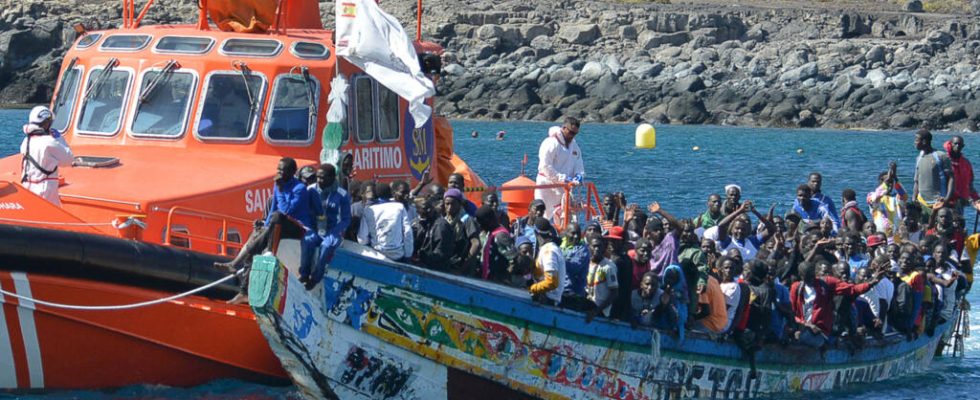The situation is becoming tense in Spain with the arrival of many unaccompanied minors via the Canary Islands, one of the main migratory routes from Africa to Europe. The archipelago, which can accommodate 2,000 minors, is now home to 5,600. As a matter of urgency, the socialist government is seeking to place 400 of these minors in different regions of mainland Spain.
2 min
This is a real bargaining that we are witnessing, against a backdrop of great political tensions. Finally, after days of hesitation, the conservatives of the Spanish Popular Party (PP)They have accepted an agreement to distribute 400 Africans under the age of 18 who entered illegally by makeshift boats in the Canary IslandsThe traditional right has finally given in: these minors will be received in centres located in regions where it has power, reports our correspondent in Madrid, Francois Musseau.
PP leader Alberto Núñez Feijóo has acceded to the demand of the ruling socialists, but accusing them of not having a coherent migration policy. The traditional right is under pressure, because the extreme right of Vox believes that the reception of these young migrants is unacceptable and that they must be sent back to their country of origin.
Many protests
Far-right threatens to quit governments in protest led in coalition with the moderate rightin Valencia, Murcia, Aragon, Castilla Leon and Extremadura. More than ever, the reception and distribution of these young migrants has become a political weapon to try to weaken the adversary.
In recent years, many demonstrations have been organized in the Canary Islands on this subject. On Saturday, July 6, several hundred people demonstrated there to protest against illegal immigration in this Spanish archipelago that has welcomed 19,257 migrants to its shores since the beginning of the year. With placards ” Let’s defend our neighborhoods ” Or ” Stop illegal immigration “, the demonstrations took place in cities such as Las Palmas and Santa Cruz de Tenerife, and brought together several hundred people in this archipelago located in the Atlantic Ocean, off the coast of North-West Africa, according to the local press.
Several lawyers had asked the public prosecutor to ban the protests on the grounds that they could constitute a hate crime. However, this request was not followed up, according to local media.
Also readThe Canary Islands archipelago faces the risk of saturation with the arrival of many migrants
